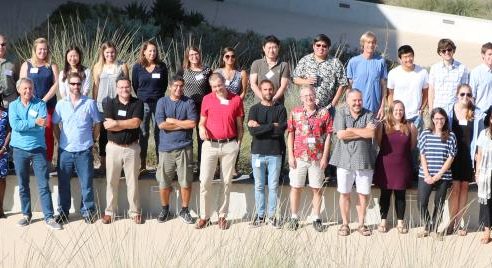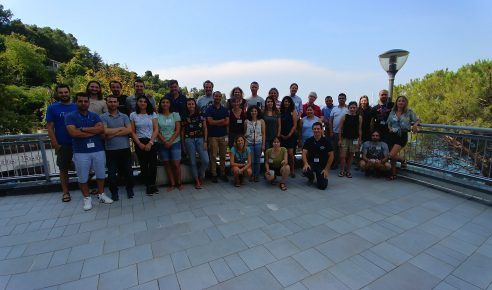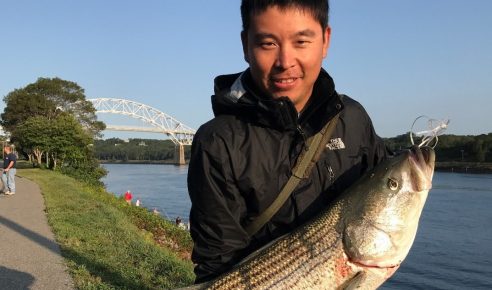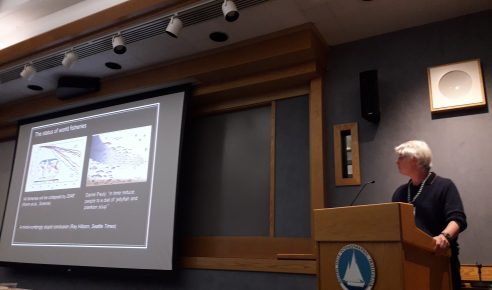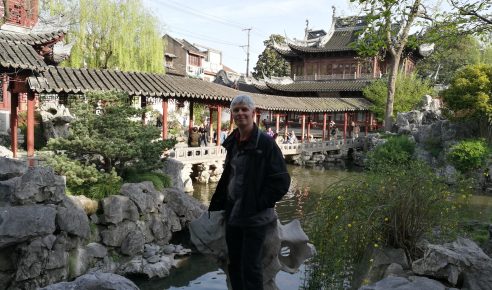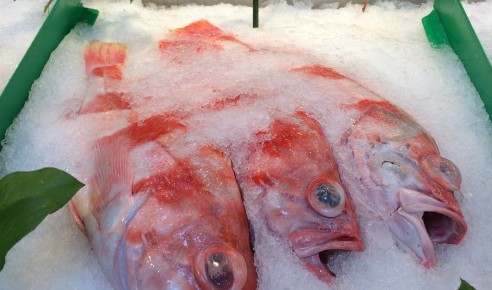Allora! Last week André Punt and I visited the International Centre for Theoretical Physics (ICTP) in Trieste, Italy to lead a workshop on Multi-species Management Strategy Evaluation (MSE) for the Advanced School on Multispecies modelling Approaches for ecosystem-based marine Resource Management in the MEDiterranean Sea (AMARE-MED 2018). The AMARE-ED aims to establish best practice multi-species assessment methods through review, evaluation, and comparison of models and approaches by providing annual courses. Andre co-taught the first AMARE-ED course on Models of Intermediate ComplExity (i.e., MICE models) and Gadget, taught by Valerio Bartolino (Swedish University of Agricultural Sciences), last year in Sicily and was most excited for the invitation to work with the advanced school again. This year we were fortunate to teach 30 workshop participants from many countries around the Mediterranean Sea.
In a mere five days, Andre lead us through the basics of performing MSE and constructing multi-species models using Ecopath, Ecosim, and Rpath (GitHub). The group bonded in the air-conditioned basement computer lab [i.e., the ideal coding environment] as André introduced MSE, designing operating models, selecting candidate management strategies, coding and implementing MSE, presenting MSE results to fisheries managers, and using R and Rpath to code a multi-species MSE with technical interactions. Workshop participants completed hands-on exercises covering: coding a MSE based on Potential Biological Removals (Wade, 1998); coding a MSE with technical interactions; setting up an Ecopath model in Rpath; conditioning a Rpath model using optimization in R; and a culminating project to code a multi-species MSE with technical interactions using Rpath, compare management strategies, and present their findings. This last exercise was truly the most rewarding experience for both André and the workshop participants because it provided an opportunity to apply all that was learned in one creative (and lightly competitive) group assignment. Ultimately, this was one of the first times that a multi-species model in Ecopath/Rpath incorporating technical interactions was included in an MSE framework!
Our Italian getaway was not just all work! We learned about three examples of MSEs being developed for Mediterranean Sea fisheries from local fisheries scientists. Betulla Morello, representing the GFCM, presented on “Management Strategy Evaluation towards providing advice within the General Fisheries Commission for the Mediterranean”. Piera Carpi, representing the CEFAS, discussed “A ‘shortcut’ MSE using a non-equilibrium simulator”. Finally, Igor Celic, representing OGS, shared their work on “Multiple ecosystem simulations as a tool for evaluation of management measures: the case of the EU Landing Obligation”. We then embarked on an excursion to the Miramare Marine Protected Area, a fifteen minute walk from the institute to learn about one of the oldest and smallest MPAs in Italy. Then workshop participants had the opportunity to go on a guided snorkeling tour of the MPA or on a tour of the mussel farms in the Gulf of Trieste. The day closed with a traditional dinner by the sea with good company! André’s doppelgänger was sighted at a nearby salsa lesson. Or perhaps it was really André—the world may never know.
André and I are grateful for the steering committee, supporting organizations, ICTP institute, and most of all the workshop participants for the invitation and enthusiasm for learning. We are eager to see the projects these scientists will pursue in the future!
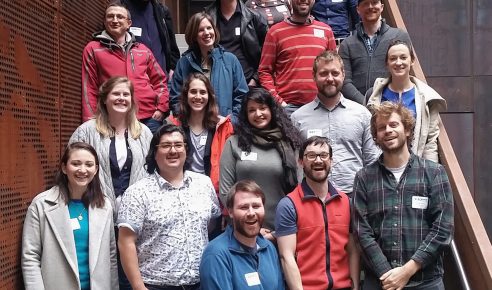
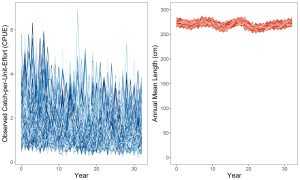 “
“